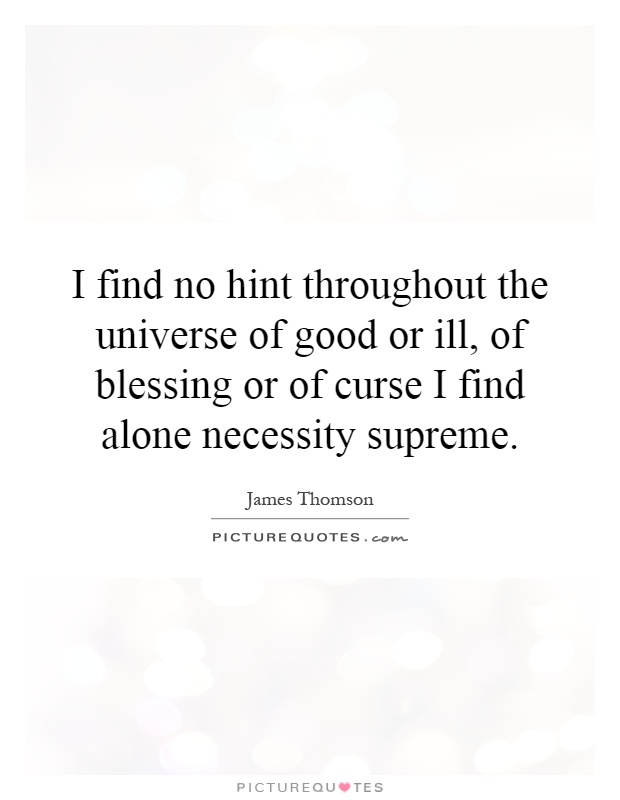I find no hint throughout the universe of good or ill, of blessing or of curse I find alone necessity supreme

I find no hint throughout the universe of good or ill, of blessing or of curse I find alone necessity supreme
James Thomson, a Scottish poet and playwright, is known for his philosophical musings on nature, the universe, and the human condition. In his work, Thomson often explores themes of fate, destiny, and the inherent order of the universe. One of his most famous lines, "I find no hint throughout the universe of good or ill, of blessing or of curse I find alone necessity supreme," encapsulates his belief in the power of necessity and the absence of divine intervention in human affairs.Thomson's statement reflects a sense of resignation to the forces of fate and the inevitability of life's circumstances. He suggests that there is no inherent moral order in the universe, no divine plan that dictates the course of events. Instead, he sees necessity as the driving force behind all actions and outcomes. This idea of necessity as supreme aligns with Thomson's belief in the natural order of the universe, where events unfold according to their own logic and without the need for external intervention.
Thomson's perspective on necessity can be seen as a rejection of traditional religious beliefs that attribute human experiences to the will of a higher power. Instead, he emphasizes the role of natural laws and forces in shaping the world around us. This view aligns with the Enlightenment ideals of reason and rationality, which sought to understand the world through observation and empirical evidence rather than through faith or superstition.












 Friendship Quotes
Friendship Quotes Love Quotes
Love Quotes Life Quotes
Life Quotes Funny Quotes
Funny Quotes Motivational Quotes
Motivational Quotes Inspirational Quotes
Inspirational Quotes